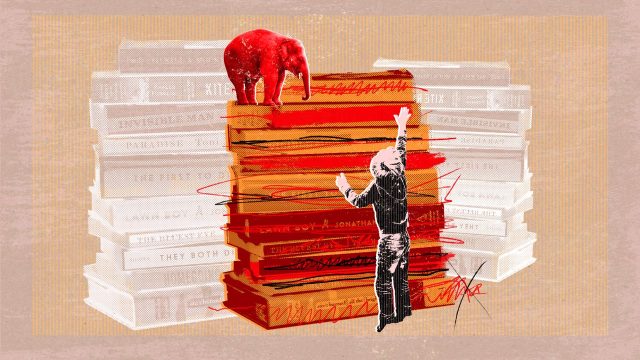
Even before the invention of the printing press, books were often deemed subversive and threatening by authoritarian rulers. It’s no surprise then that maneuvers like book banning, confiscation and even burning have been used repeatedly by desperate tyrants fearful of a fully-informed citizenry. Book banning also has a long history in the United States, from censors seeking to keep Harriet Beecher Stowe’s abolitionist novel “Uncle Tom’s Cabin” out of the hands of readers to the targeting of birth control advocacy under the 1873 Comstock Act. But the country has never seen anything quite like today’s national campaign to silence voices disfavored by the contemporary Republican Party.
When did the recent book purge begin?
After the COVID-19 pandemic, far-right activists concocted a series of ideological boogeymen to wage war against, including critical race theory and what President Donald Trump calls “gender insanity” — a catch-all term that he and his allies use to describe anything that involves LGBTQ+ identity. Activist organizations like Moms For Liberty sought to take over local school boards and police the content of books in school libraries, sifting through literature to identify and eliminate race and gender-related content, arguing they were targeting material that was too explicit for children or young adults.
“Never before in the life of any living American have so many books been systematically removed from school libraries across the country,” said PEN America, documenting what it claims has been nearly 23,000 book bans in the United States since 2021. Most of these efforts are happening in public school districts nationwide, as conservative parents and activists identify an ever-growing number of ideas to which they do not want young people to have exposure. Republicans disagree. States and school districts are merely “providing students with a quality education free from sexualization and harmful materials that are not age-appropriate,” said Florida Gov. Ron DeSantis (R).
Increasingly, bans are being driven by elected officials rather than by parents raising concerns about a book. In November 2024, for example, the Florida Department of Education released a list of more than 700 books that had been banned in state public schools during the 2023-2024 school year, saying that “sexually explicit materials do not belong in schools.”
Which books have been targeted?
Some conservatives have challenged PEN America’s classification of book bans, arguing that many books the organization claims have been removed from schools in 2021-2022 were either under review or were simply moved to a different age section of the library. In reality, there are “few actual book removals and they are overwhelmingly based on parental objections to sexually explicit content,” said Jay P. Greene, Max Eden and Madison Marino in a 2023 report at The American Enterprise Institute. The organization’s definition of book bans focuses on “situations where objections or prohibitions result in previously available books being taken off limits,” said PEN America, replying to criticism of its methodology.
PEN America’s list of the most banned books of 2025 includes recent young adult novels and classics like Judy Blume’s “Forever.” The fourth-most-banned book is Malinda Lo’s “Last Night at the Telegraph Club,” about an immigrant teenager, Lily Hu, who starts going to a lesbian bar with a friend. The book is “beautifully written historical fiction about giddy, queer first love,” said Kirkus Reviews. It wasn’t beautiful enough for the South Carolina Board of Education, which made it one of 22 titles forbidden from all public school libraries in the state in 2025.
Another frequent target of right-wing censors is Sarah J. Maas’ young adult book series “A Court of Thorns and Roses,” which is the “story of a poor, disenfranchised young woman who escapes an abusive, tyrannical boyfriend; finds an egalitarian wonderland; learns to read; takes contraceptives and has sex on her terms,” said Jezebel. Book-banners hate it because there is “nothing as dangerous to the dried up strictures of the status quo as a mind on fire.”
How America’s culture wars collided with parents and legislators who want to keep their kids away from ‘dangerous’ ideas





